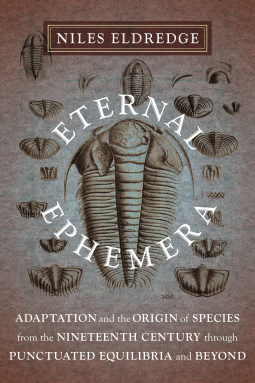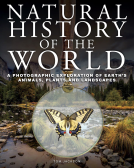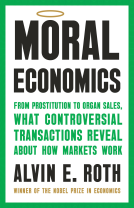
Eternal Ephemera
Adaptation and the Origin of Species from the Nineteenth Century Through Punctuated Equilibria and Beyond
by Niles Eldredge
This title was previously available on NetGalley and is now archived.
Send NetGalley books directly to your Kindle or Kindle app
1
To read on a Kindle or Kindle app, please add kindle@netgalley.com as an approved email address to receive files in your Amazon account. Click here for step-by-step instructions.
2
Also find your Kindle email address within your Amazon account, and enter it here.
Pub Date Mar 03 2015 | Archive Date Jun 15 2015
Description
One of evolution's fundamental questions is how the skein of life on Earth remains unbroken yet is constantly renewed by new species. What accounts for the scientific paradox that all organisms and species are ephemeral, and yet life endures, yielding more advanced players in nature's eternal play? In this riveting work, renowned scientist Niles Eldredge presents a magisterial account of leading thinkers as they wrestle with this paradox over a span of two hundred years.
Eldredge begins in France with Jean Baptiste Lamarck, who in 1802 first framed the overarching question about new species. Giambatista Brocchi followed, bringing in geology and paleontology to expand the question. In 1825, at the University of Edinburgh, Robert Grant and Robert Jameson introduce these astounding ideas to a young medical student named Charles Darwin. Who can doubt that Darwin left for his voyage in 1831 filled with these daring, new ideas about the "transmutation" of species, well cultivated by earlier thinkers tilling this rugged and contentious intellectual ground?
Eldredge revisits Darwin's early insights in South America and his later synthesis of knowledge into the origin of species. He then considers more recent evolutionary thinkers, such as George Gaylord Simpson, Ernst Mayr, and Theodosius Dhobzhansky, concluding with the young, brash graduate students Niles Eldredge and Steven J. Gould, who set science afire with their revolutionary concept of punctuated equilibria and upended accepted evolutionary ideas. Filled with shattering insight into evolutionary biology and told with a rich affection for the tumult of the scientific arena, this new book is destined to become a classic in the field.
Niles Eldredge is a paleontologist formerly on the curatorial staff of the American Museum of Natural History. He developed the theory of punctuated equilibria with Stephen Jay Gould, and his book The Pattern of Evolution offers a comprehensive theory of how environmental change governs the evolutionary process. He is also the author of Life in the Balance: Humanity and the Biodiversity Crisis and The Triumph of Evolution . . . and the Failure of Creationism and was a coeditor of the journal Evolution: Education and Outreach.
Advance Praise
"Very cutting edge. The historical insights in this book are original and bring in interesting and important themes in the thinking about species and speciation."—Donald R. Prothero, author of Evolution: What the Fossils Say and Why it Matters
Available Editions
| EDITION | Hardcover |
| ISBN | 9780231153164 |
| PRICE | $35.00 (USD) |
Average rating from 13 members
Readers who liked this book also liked:
Hazel V Carby
Essays & Collections, Multicultural Interest, Politics & Current Affairs
Alvin E. Roth
Business, Leadership, Finance, Health, Mind & Body, Politics & Current Affairs


















